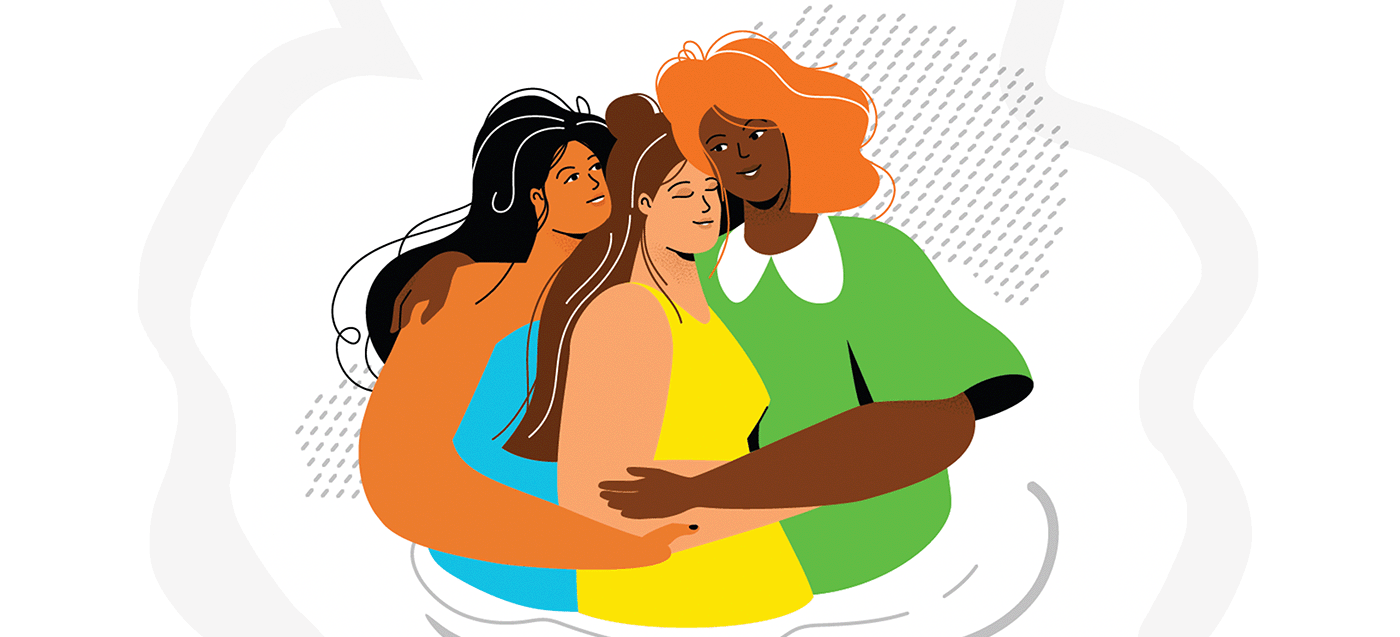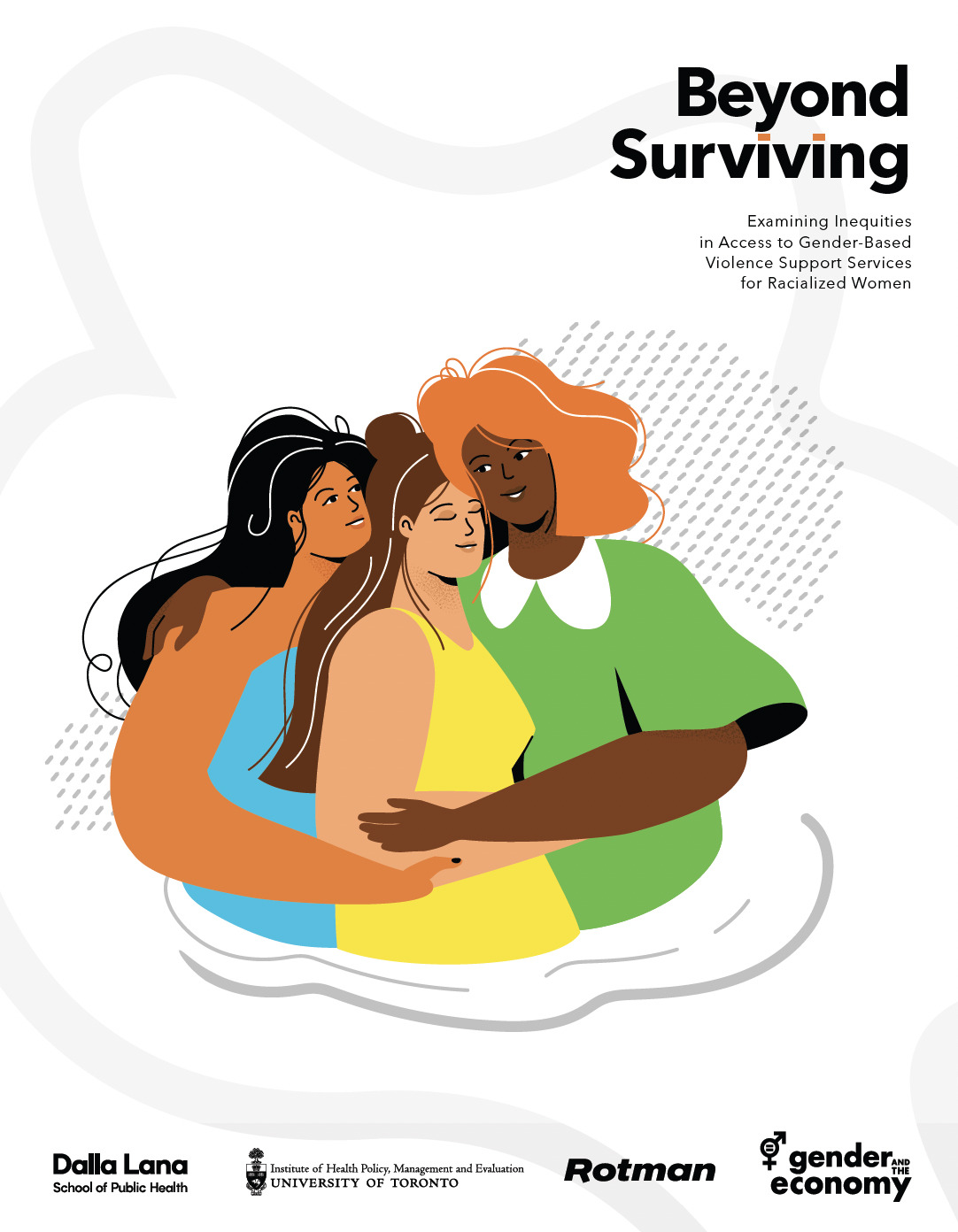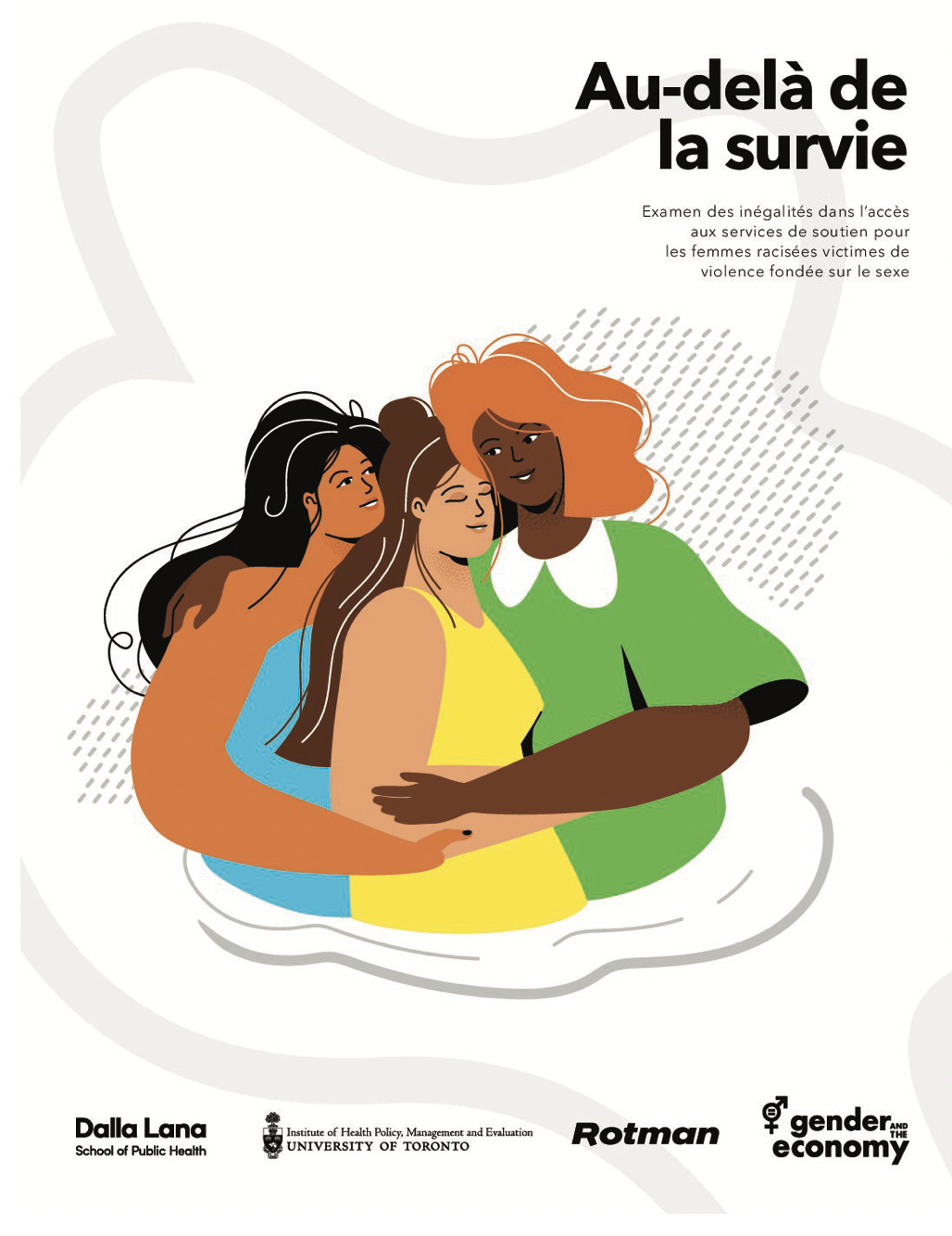Gender-based violence (GBV) remains a global pandemic with destructive effects on the well- being of women and girls. Defined as any act of violence that results in physical, sexual, or emotional harm and suffering, GBV takes many forms, encompassing intimate partner violence (IPV), non-partner violence, and other harmful acts directed at people based on their gender expression, gender identity, or perceived gender. It can include physical abuse, criminal harassment, emotional and psychological abuse, and coercive control. For all those experiencing GBV—but especially for racialized women—leaving abusive relationships can entail significant challenges, among them surmounting barriers that prevent GBV survivors from accessing formal care and support. This report synthesizes research on barriers to accessing support services for racialized women who experience gender-based violence and the outcomes associated with access to support services that reflect the lived experiences of racialized GBV survivors.
Key findings:
- Common supports reflected in the literature include healthcare, policing, social work, legal or criminal justice assistance, psychosocial help, and support by social networks such as family, friends, and neighbours.
- People experiencing GBV are often motivated to seek formal care and support to protect their children.
- The presence of supportive informal networks and positive prior experiences with formal service providers can motivate help-seeking.
- Survivors frequently experience barriers when accessing support that relate to the acceptability, affordability, and availability of the services they need.
- Acceptability barriers include cultural acceptance of violence, internalized stigma and shame, racial and gender stereotypes and oppression, and a lack of culturally and linguistically appropriate services.
- Affordability barriers include the cost to access services, lack of health insurance and the cost of medical care, and lack of financial autonomy.
- Availability barriers include lack of knowledge of services, transportation concerns, and time constraints.
- Service providers also struggle to provide comprehensive and culturally competent and safe services to women due to funding constraints, inadequate legal structures, and rigid immigration policies.
- When adequately supported, racialized survivors experience improved well-being, improved self-confidence, reduced psychological distress, increased social connectedness, and increased motivation to help others facing violence.
- Inadequate attention to the needs of racialized survivors can risk secondary victimization by service providers and the escalation of violence from abusive partners.
CLICK HERE TO DOWNLOAD THIS RESEARCH REPORT IN ENGLISH /IN FRENCH
__________________________
RESEARCH REPORT PREPARED BY
Beverley M. Essue, Cyndirela Chadambuka, Isabel Arruda-Caycho, Carmina Ravanera, Amaya Perez-Brumer, Rebecca Balasa and Sarah Kaplan









